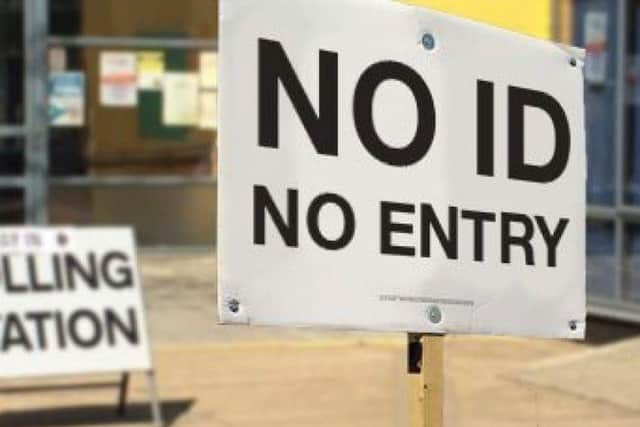Planning for general election "challenging" thanks to voter ID
and live on Freeview channel 276
Offials said staff were grappling with challenges created by the new demand for voters to provide ID before they make their mark. New rules mean polling stations have to carry out more identity checks than simply checking addresses.
It will mean it takes longer to cast a vote – and could even discourage people from working at polling stations.
Advertisement
Hide AdAdvertisement
Hide AdAnd it was also highlighted that fears remain over the new rules leaving groups who already face challenges voting feeling further excluded, something reported at recent English council elections.


In a report to the Corporate Policy and Resources Policy Development and Scrutiny Panel (PDSP) Caroline Burton, from the chief executive’s office, said: “The next UK Parliamentary election must be held by January 28, 2025.
“The date not being known, the changes being introduced by the Elections Act 2022, the requirement to review the polling scheme during this time frame, new constituency boundaries being used and a backdrop of pressure to reduce costs makes planning for this poll especially challenging.
“Work is ongoing with partners to meet these challenges and reviewing the polling scheme is part of this.”
Advertisement
Hide AdAdvertisement
Hide AdThe traditional polling card sent to voters ahead of the election will now become a letter explaining new rules and outlining the 21 types of ID which are acceptable.
These range from passport and driving licences to Blue Badge and 60+ bus passes. They also include European Economic Area national identity cards.
Mrs Burton said: “Returning Officers across Scotland are concerned that the demographics who already face more barriers to taking part in democracy are less likely to have an acceptable form of ID.
“Estimates from the UK Government are that around two per cent of the electorate will not have a form of ID that can be used to vote; Electoral Commission research put this at four per cent.
Advertisement
Hide AdAdvertisement
Hide Ad“The experience from England in the May 2023 elections suggests that, even with a large, targeted communications campaign, many voters will be at risk of being disenfranchised.”
The council is also facing increasing costs of staging elections, staffing could be an issue and checking IDs will make queues more likely.
The vast majority of the new Bathgate/Linithgow constituency is the former Linlithgow and East Falkirk patch, taking in Armadale, Blackridge, Bathgate, Whitburn, Blackburn, Linlithgow, Broxburn, Uphall and Winchburgh. It will also include Bo’ness and Blackness in the Farkirk Council area.
The Livingston constituency takes in the remaining eastern and southern wards of West Lothian.
Advertisement
Hide AdAdvertisement
Hide AdThe council is also undertaking a statutory review of its polling districts and polling places for elections.
Representations are now invited on the existing or proposed polling arrangements by March 31. Comments can be made by email to [email protected], or to the Returning Officer, Election Office, Civic Centre, Howden South Road, Livingston, EH54 6FF, or by calling 01506 282035.